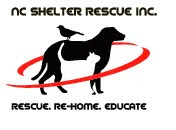It took way to long but FINALLY it's here. The new AVMA's
statement on gas chambers, they are no longer being listed as acceptable ( due
to conditions) to kill our companion animals. So NC remove your 13 Gas Chambers
that still are in operation in 2013.
http://atwork.avma.org/2013/02/26/euthanasia-guidelines-the-gas-chamber-debate/
Euthanasia Guidelines: The Gas Chamber Debate
February 26, 2013 | Dr. Gail Golab
Now that the 2013 edition of the AVMA Guidelines for the
Euthanasia of Animals has been issued, the debate over the use of gas chambers
for euthanasia of unwanted dogs and cats in animal shelters is likely to take
center stage once again.
In previous editions of the guidelines, the use of carbon
monoxide (CO) or carbon dioxide (CO2) gas was considered ‘acceptable’ for
euthanasia of dogs and cats. In the 2013 Guidelines, the classification for use
of these gases has been changed to ‘acceptable with conditions’. Techniques that are ‘acceptable with conditions’
may have greater potential for operator error or safety hazard, are not well
documented in the scientific literature, or may require a secondary method to
ensure death. The use of these
techniques requires that specific conditions be met to ensure that death is
achieved in a humane way. When ALL of the conditions are met, ‘acceptable with
conditions’ methods are equivalent to ‘acceptable’ methods. And, if all
conditions are not met, they are not considered ‘acceptable.’
This means that the use of CO or CO2 for euthanasia of dogs
and cats is ONLY considered acceptable when ALL of the following criteria are
met. For more details, consult the full Guidelines.
1.Personnel must be
instructed thoroughly in the gas’s use and must understand its hazards and
limitations;
2.The gas source and
chamber must be located in a well-ventilated environment, preferably
out-of-doors;
3.The gas must be
supplied in a precisely regulated and purified form without contaminants or
adulterants, typically from a commercially supplied cylinder or tank;
4.The gas flow rate
must allow operators to achieve known and appropriate gas concentrations within
the recommended time;
5.The chamber must be
of the highest-quality construction and should allow for separation of
individual animals. If animals need to be combined, they should be of the same
species, and, if needed, restrained or separated so that they will not hurt
themselves or others. Chambers should not be overloaded and need to be kept
clean to minimize odors that might distress animals that are subsequently
euthanized;
6.The chamber must be
well lighted and must allow personnel to directly observe the animals;
7.If the chamber is
inside a room, monitors must be placed in the room to warn personnel of
hazardous concentrations of gas; and
8.It is essential
that the gas and the chamber be used in compliance with state and federal
occupational health and safety regulations.
In the 2013 Guidelines, euthanasia by intravenous injection
of an approved euthanasia agent remains the preferred method for euthanasia of
dogs, cats, and other small companion animals. Gas chambers are not recommended
for routine euthanasia of cats and dogs in shelters and animal control
operations. The guidelines state that “alternate methods with fewer conditions
and disadvantages are recommended for companion animals where feasible.”
We understand that some people believe these chambers should
be banned for use for dogs and cats. Unfortunately, there are still shelters
and animal control operations that do not have access to controlled substances
and/or the personnel authorized by the Drug Enforcement Administration (DEA) to
administer them. This limits these
facilities’ options for euthanizing animals. If your local shelter or animal
control operation uses a gas chamber to euthanize dogs and cats and you
strongly believe its use should be discontinued, we recommend you work with the
facility to develop a realistic plan to phase out the use of the chamber.
Reducing the population of unwanted animals reduces the number of animals that
may need to be euthanized, so efforts to reduce pet relinquishments and
increase adoptions are the best long-term solutions.















